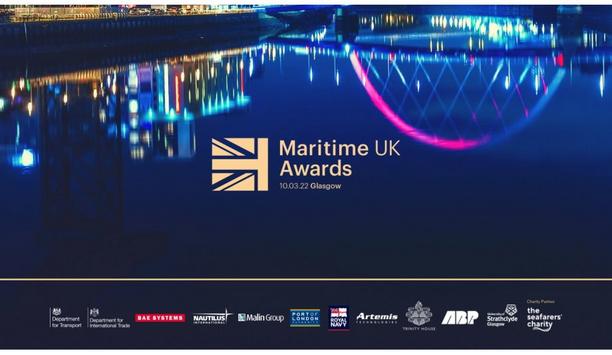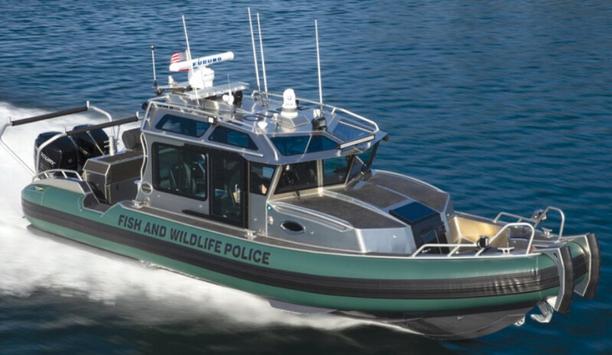Ship owners, operators and managers responding to an environmental survey, carried out by Canadian-based McMaster University’s DeGroote School of Business, have acknowledged the need to reduce operational oil leakage from propeller shafts, but a lack of understanding about cleaner alternatives is preventing any meaningful technological change.
Environmental survey
Researchers questioned more than 1000 marine industry professionals in 2021, in order to better understand why the majority of newbuild ships continue to be fitted with outdated oil lubricated propeller shafts, when proven, cleaner technology is widely available.
The DeGroote School of Business works closely with organisations, to provide practical experiential learning"
Dr. Ken Deal, Professor of Marketing, DeGroote School of Business, McMaster University, said “The DeGroote School of Business works closely with organisations, to provide practical experiential learning for students. The survey, designed to better educate the shipping industry’s decision makers, provides a good example of how academia and business can work together, to help different industries achieve their environmental goals.”
Knowledge gap about seawater lubricated systems
McMaster University, part of the U15 Group of Canadian Research Universities, identified a large gap in knowledge about seawater lubricated systems.
According to the survey findings, while 74% of the respondents believed ‘oil leaking from the stern tube negatively affects the environment’, responses indicated a lack of knowledge about the costs, benefits, reliability, technical equivalence, and performance realities of an open seawater lubricated propeller shaft bearing system.
Reason behind ship owners specifying oil-lubricated systems
Of all the 25 questions posed, the most telling indication as to why ship owners continue to specify oil-lubricated systems was gleaned from question number six – ‘How important are the following factors when choosing an oil lubricated system over a seawater lubricated system for your fleet?’. Variations of ‘it works, so why change it,’ made up the majority of answers.
Jeff Tennebaum, Marketing Manager, Thordon Bearings, who instigated the study, stated “Many of the respondents were not fully aware of the problem. They obviously care about the environment, but the results suggest they may not consider a stern tube oil leak to be a significant source of pollution.”
Misconception regarding seawater lubricated propeller shafts
The problem with seawater lubricated shafts is that we have to withdraw them every 5 to 6 years"
When participants were asked how much they agreed or disagreed with a series of statements relating to performance, there appeared to be a misconception that seawater lubricated propeller shafts were not as proven as oil lubricated systems.
Respondents were unaware of the technical advancements seawater lubricated propeller shaft bearing systems have made over the years.
“The problem with seawater lubricated shafts is that we have to withdraw them every 5 to 6 years. If that is solved, then I would prefer them over the oil lubricated shaft,” said another respondent.
Seawater lubricated shaft bearing system
In reality, developments in polymer materials, corrosion prevention and condition-based monitoring has resulted in Class Societies designating an open seawater lubricated shaft bearing system as technically equivalent to a sealed oil-lubricated system, benefitting from the same extended shaft withdrawal rules.
Jeff Tennebaum said, “It competes on so many different levels, including cost, so we don’t understand why oil lubricated systems continue to dominate. I think the COP26 Clydebank Declaration and the introduction of green shipping corridors – zero-emission routes, between two or more ports – will result in a new way of thinking. It has to.”
Need for shipyards to change mentality
Remember, zero emissions means removing the threat of pollution from both below and above the water line"
Jeff Tennebaum adds, “Remember, zero emissions means removing the threat of pollution from both below and above the water line.”
The survey identified that shipyards, often the driving force in machinery selection for a newbuild, remain entrenched and reluctant to change. This (oil lubrication)) is the industry standard. Mostly due to what’s offered by the yard. It was never proposed by any newbuilding shipyard. Shipyards are reluctant to change to a water lubricated arrangement, were just some of the survey responses.
Shipping industry has to adopt water lubricated systems
Craig Carter, the Vice President (VP) of Business Development, Thordon Bearings, said “An immediate increase in ship owners demanding water lubricated systems would slowly pivot the direction of the global shipping industry towards a much more environmentally sustainable, zero pollution future. One that’s in line with the United Nations Sustainable Development Goal #14 and with the IMO’s World Maritime Theme for 2022 - New technologies for greener shipping.”
Craig Carter adds, “We are disappointed, of course, that the ‘if it works, why change it’ mentality persists, but we will address these issues through a series of educational videos, seminars and workshops. It is absolutely crucial that Thordon Bearings and other manufacturers continue to educate the industry about the advantages of open seawater lubricated system, as a way of meeting sustainability targets. However, regulatory authorities also have an important role to play.”












